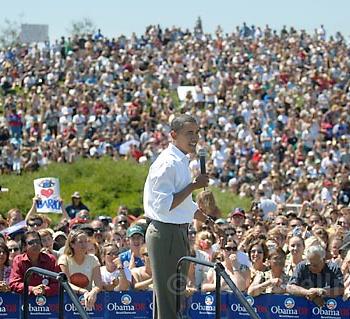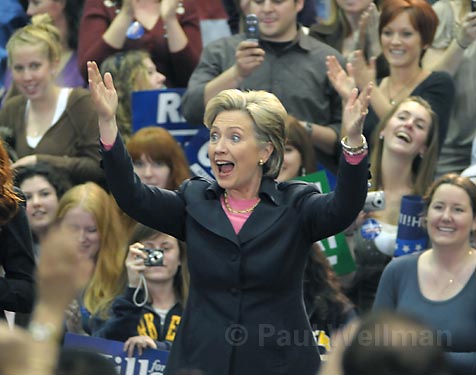Why Teens Matter on Super Tuesday
How Santa Barbara's Youth Are Influencing the Political Process

With Super Tuesday right around the corner – including the first-ever February primary in California – it’s coming down to the wire for the teenagers of voting age in Santa Barbara to make their decision for a presidential candidate. While there continues to be disheartened view of political participation among Santa Barbara’s young adults and teenagers, across the country there’s more political participation than ever among first time voters, as concerns are widespread about the War on Terror, the war in Iraq, the economy, and illegal immigration.
But participation in the political process extends beyond those of legal voting age to teens that aren’t yet 18 years old. A lot of this participation can attributed to the widespread dissatisfaction with the Bush administration and the belief that America needs fresh leadership. With the country at war and slipping into economic despair, teenagers in Santa Barbara and beyond are now seeing the consequences of standing on the political sidelines. They’re starting to realize that if they don’t take a stand, they’ll be the ones paying the price of Baby Boomer mistakes 30 years down the road.

Lawrence Gamble, who teaches U.S. government at Santa Barbara High and political science at Santa Barbara City College, explained, “By all indications, a record number of young voters aged 18 to 25 and young people who are not old enough to vote are participating in the political process and getting involved in the presidential primary campaign season. I believe that Barack Obama’s candidacy, more than any other, is exciting young people who want to see a positive political change and who want to help the United States heal political, social, ethnic, and economic divisions. Hillary Clinton’s candidacy is also exciting women voters who have for the first time a viable candidate for President. While several of the Republican contenders, notably Ron Paul, are generating enthusiasm for their candidacies, it seems the Democrats are more popular with young people this election.”
It is difficult for many teenagers to talk with their parents about anything, let alone politics. So while they may not be able to convince their parents to vote for a particular candidate, their passion and enthusiasm about a candidate can spread to their friends of voting age. Plus, those teenagers that aren’t yet 18 will likely be able to vote in the next election cycle, which means that getting involved now will provide the needed experience to make an informed decision when they go to the polls in four years.
Just the thought of teenagers being concerned and talking about politics gets the talking heads on the television networks concerned about the youth “hijacking” the election. This perceived threat may even give older voters a nudge to go out and vote against these “naive” young voters. But ultimately, the candidates on both sides of the aisle who appeal to the young voters usually tend to have a diverse following of various ages, races, and classes. In that regard, it seems the youth threat is more a pundit’s talking point than a true hijacking scenario.
Santa Barbara High School‘s newspaper The Forge conducted a poll of social studies and English classes of all grades and levels to get a rough estimate of where the students’ support lied. Barack Obama carried the huge majority of support of students, capturing 70 percent of the total vote among all the candidates. Obama’s message for real change in America has gained him a lot of support among young voters who are drawn to his energy and his lack of time spent toiling in the underbelly of Washington politics.
“Obama speaks to me and he speaks to the youth,” said Brian Rueda, a senior at Santa Barbara High. “He cares about the issues I care about, like universal health care and supports illegal immigrants instead of hating them.” The wildcard, Libertarian-leaning Republican candidate Ron Paul has also attracted a large base of young voters because of his plan for immediate withdraw from Iraq, a fresh economic policy, and support for legalizing marijuana.
Students aren’t just showing their support for their candidate by going out to the polls on February 5-they’re pounding the political pavement as well. Santa Barbara High senior Chelsea Yarnell has been working as an Obama precinct captain on the Mesa. Her group of volunteers has held events at the Santa Barbara High campus to get students interested and informed about Obama’s campaign and get them registered to vote for the presidential primary.
So no matter what happens on Super Tuesday, one thing’s certain: whether or not they can actually vote, teenagers are influencing the political process in 2008. And that’s a good sign for democracy.



